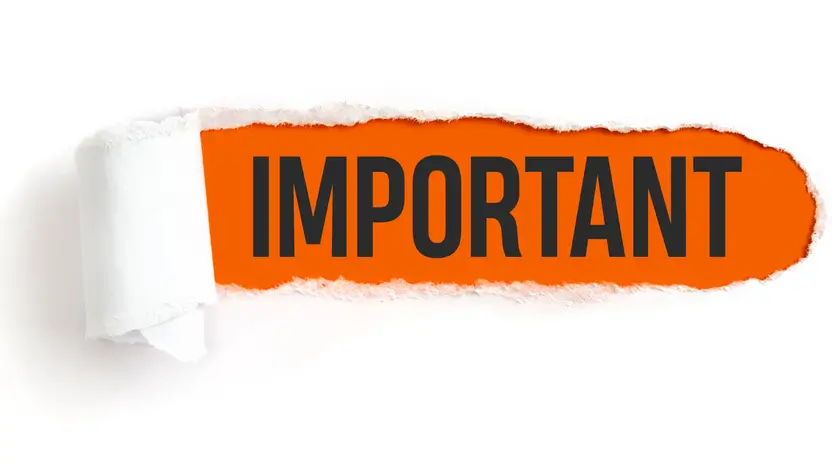
This site is reader-supported. We may earn a small commission if you make a purchase from one of our partners.
If you’re reading this article, chances are you’re in the middle of a stressful dispute.
Maybe you’re the victim of slander? Perhaps you are in a trademark dispute? Or maybe you’re being harassed by a debt collector?
No matter your dispute, a Cease and Desist letter can help solve it without getting into expensive legal action.
In this article, you’ll learn when you should consider sending a Cease and Desist letter, the options for getting one, and the best ways to deliver it.
Ready? Let’s get started.
How to Get a Cease and Desist Letter

There are four main ways you can get a Cease and Desist letter, each with its own pros and cons. Here’s a breakdown to help make your decision easier:
The DIY Approach (Writing Your Own Letter)
The “Do-It-Yourself” approach involves writing your own Cease and Desist letter and sending it directly to the person or company yourself.
Pros:
- This is the least expensive option, and you only need to consider the cost of sending the letter in the mail.
- This is also the fastest option, as it takes less time to write the letter yourself than to work with a third party to draft one on your behalf.
Cons:
- You get what you pay for. Self-written letters tend to have the least impact when they are received.
- You need to ensure your spelling and grammar are perfect, or you run the risk of the letter not being taken seriously.
Estimated Cost:
- $10 (for the price of mailing the letter)
The Freelancer Approach
The Freelancer approach involves finding a freelance writer to draft your letter for you. You can typically find people willing to do this on Freelancer or Upwork.
Pros:
- You will typically get your letter quickly for a reasonable cost.
- Third-party freelancing sites like those mentioned above include dispute resolution mechanisms if you don’t get the quality you are looking for.
Cons:
- You likely won’t get your letter on professional letterhead, which adds weight to your argument.
- Quality can be hit-or-miss, and you will need to take time to research your options before selecting a freelancer to do the work. You may even need to pay a second or third freelancer if the quality isn’t there.
- Costs can range wildly depending on the freelancer’s experience and where they live in the world.
Estimated Cost:
- $25 – $150 (depending on the freelancer and their location)
The Template Approach
This is where we can help. At Cease & Desist Services we work with the top online companies that provide effective legal forms and templates.
These companies are easy to find. We recommend Law Depot and you can quickly get started here.
Estimated Cost:
- $25 – $50 (depending on the template)
The Lawyer Approach
The lawyer approach involves hiring an attorney to write your own Cease and Desist letter for you. This option will typically include a legal opinion on the validity of your claim and the service of sending/delivering the letter on your behalf.
Pros:
- This type of letter typically has the maximum impact as it will be delivered on your attorney’s letterhead. This gives the impression that you are only one step away from filing a civil claim.
- An attorney can be a great sounding board and help you prepare for a scenario where the recipient ignores your letter.
Cons:
- This is, by far, the most expensive option. An attorney can charge hundreds or thousands of dollars per hour, quickly driving up your costs.
- It can take time for a lawyer to prepare your letter, and you could face delays if they are already busy with other cases.
Estimated Cost:
- $500 – $10,000 (depending on the lawyer and the complexity of the case)
When is it appropriate to use a Cease and Desist Letter?

A Cease and Desist letter can help solve many different types of problems.
Here are a few examples:
Harassment
If you are being harassed by an individual or a company, a Harassment Cease and Desist letter can help end it. The letter will state that the harassing behavior is unwelcome and must stop immediately.
It will also give the person/company a formal warning that you will take legal action if the harassment does not cease.
Defamation
If you have been the victim of defamation, a Defamation Cease and Desist letter can help. This type of letter will state that the defamatory statements are damaging and must stop immediately. It will also tell them that you will take legal action if they do not cease making these statements.
Defamation Cease and Desist letters fall into two categories:
- Slander: This is when the false statements are made orally and are not recorded or broadcast. Examples would include someone spreading rumors or lies about you to friends, family, or other associates.
- Libel: This is when the false statements are made in writing or are broadcast in some way. This can include things like newspaper articles, social media posts, or television interviews.
Debt Collection
If you are being harassed by debt collectors, you can use a Debt Collector Cease and Desist letter to stop the harassment. The Fair Debt Collection Practices Act (FDCPA) protects consumers from debt collector harassment in the US. Under the FDCPA, debt collectors cannot use abusive, unfair, or deceptive practices when collecting a debt. This includes repeatedly calling, making threats, disclosing information about the debt to others, and using profanity.
If a debt collector violates the FDCPA, you can send them a Cease and Desist letter telling them to stop. The letter will also warn the debt collector that you will take legal action if they do not stop their illegal behavior.
Infringement
If you believe your intellectual property rights have been infringed, you can send an Infringement Cease and Desist letter to the infringing party. This type of letter asserts that the recipient is illegally using your copyrighted material, trademark, or trade secret and demands that they stop immediately. It will also inform the person/company that if they do not cease their infringing activity, you will take legal action.
Infringement typically falls into one of three categories:
There are two main types of Property C&D Letters:
- Trespass: This occurs when someone enters your property without your permission.
- Encroachment: This occurs when someone builds on your property without your permission.
- Copyright Infringement: This is when someone uses your copyrighted material without your permission.
- Trademark Infringement: This is when someone uses your trademark without your permission.
- Patent Infringement: This is when someone uses your patented invention, process, or technique without your permission
If any of these apply to you, you can send them a Cease and Desist letter demanding that they immediately stop.
Contract Disputes
If you are in a contract dispute with another party, you may be able to use a Contract Cease and Desist letter to resolve the issue. The letter will state that the other party is committing breach of contract and must stop their illegal behavior. It will also let the person/company that you will take legal action if they do not adhere to your contract.
There are two main types of Contract C&D Letters:
- Breach of Contract: This occurs when you have a contract with an individual or company with specific terms outlined in detail. When the other party fails to abide by these terms, this is called a Breach of Contract.
- Tortious Interference: This occurs when a third party interferes with a contract you have with a business or company. While this is rare, it can severely impact you and your business (if you have one).
Property Disputes
If you have a property dispute with a neighbor, you may be able to use a Property Cease and Desist letter to resolve the issue. The letter will state that the other party is trespassing or encroaching on your property and must stop ASAP. It will also inform the person/company that if they do not cease their trespass, you will take legal action.
Why use a Cease and Desist letter instead of starting legal action?

Cease and Desist letters are beneficial for quite a few reasons:
1. It’s less expensive than an attorney
Working with an attorney or law firm can be costly as most charge high hourly rates, and some even require a retainer to use their services. A Cease and Desist letter from a lawyer can cost hundreds or thousands to prepare and can take weeks to pull together.
2. It’s faster than going to court
If you plan on starting legal proceedings, it can suck up months or years of your time, especially if you involve state or federal courts. Using a Cease and Desist letter can help you get relief without spending all the time and expense needed to navigate legal action.
3. It might be all you need to stop the bad behavior
A Cease and Desist letter is also an excellent way to start the conversation with the person/company with whom you have a dispute. Sometimes, all it takes is a formal demand letter for the person to realize they’re in the wrong and stop what they’re doing. Remember, no one wants to deal with legal repercussions.
Of course, there are times when a Cease and Desist letter doesn’t work, and you have to take further legal action. But it’s always worth trying a C&D letter first before spending the time and money on going to court.
Important Things to Remember:

Once you have your letter, there are a few important things to remember:
- A Cease and Desist letter is not legally binding and shouldn’t be confused with a Cease and Desist Order (which has legal standing and is issued by a government agency, court, or regulator). It is simply a notice that you may pursue legal action if the behavior doesn’t change/stop.
- Always send your letter via Certified Mail. This will ensure that you get a delivery receipt and can guarantee that the recipient has seen it in the event you need to start the legal process.
- Before sending it, be sure you are “in the right”. Sending a Cease and Desist letter with no basis or foundation can be considered harassment and may open you up to a civil case.
Conclusion
No one wants to receive a Cease and Desist letter, but sometimes it’s the only way to get someone to stop their bad behavior.
In this article, we’ve outlined four different ways you can get a C&D letter – each with its own set of pros and cons. We’ve also provided some tips on what to remember once you have your letter in hand.
Ready to get started? Check out Law Depot for a fast and effective letter.

Wes Talisman is a freelance journalist who helps answer common legal questions for everyday people. He’s never won a Pulitzer Prize, but he does write a stellar Cease and Desist letter.